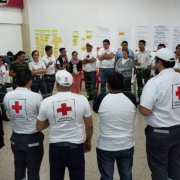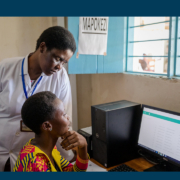Dealing with the worldwide panic about Coronavirus: Providing advice, fighting stigma, dispelling information
When a frightening new disease suddenly emerges, the global medical and public health communities snap to attention and try to determine how to slow and, ultimately, stop it from spreading.
Social and behavior change (SBC) professionals know that, at times like these, proper information that is both easily available and easy to comprehend goes a long way in easing panic and creating a sense of control over a possibly terrifying situation.
On January 30, 2020, the World Health Organization (WHO) released a statement declaring that the coronavirus (2019-nCoV) discovered in China in December 2019 now meets the criteria for a Public Health Emergency of International Concern. The announcement led the way for official recognition of the deadly virus as a danger to all, and ministries/departments of health worldwide soon ratcheted up their efforts to prevent its spread. (Read the latest information from WHO.)
For countries outside of China, the WHO directive states:
“It is expected that further international exportation of cases may appear in any country. Thus, all countries should be prepared for containment, including active surveillance, early detection, isolation, and case management, contact tracing and prevention of onward spread of 2019-nCoV infection, and to share full data with WHO.”
In quick response to the crisis, the Compass developed a Trending Topic featuring resources with the latest data and examples of SBC tools. The necessity of these educational materials rises even more in an environment where the development of a vaccine may be months in the making, creating an even larger role for behavior change to play in prevention. Promoting basic hygiene practices to limit the chance of infection is a top priority, especially in countries where outbreaks have occurred, according to guidance from WHO and the U.S. Centers for Disease Control and Prevention. In addition to the fight to avoid infection and find a vaccine, it’s also crucial to stop the spread of misinformation and the growth of stigma. As with the promotion of infection prevention, SBC practices are specifically designed to accomplish this type of work, which often includes the adjustment of longstanding social norms.
This Trending Topic is a starting point for SBC professionals seeking examples of relevant project materials and resources. Contribute to this collection by uploading your own materials or by writing to our curator.
Please note: This Trending Topic will be updated on a regular basis as new resources become available.


 Poravute/Getty Images
Poravute/Getty Images Sean Maloney/Breakthough ACTION
Sean Maloney/Breakthough ACTION Anne Ballard Sara/Breakthrough ACTION
Anne Ballard Sara/Breakthrough ACTION K4Health
K4Health Rachel Chilton/USAID/Flickr
Rachel Chilton/USAID/Flickr Daniel Schludi/Unsplash
Daniel Schludi/Unsplash